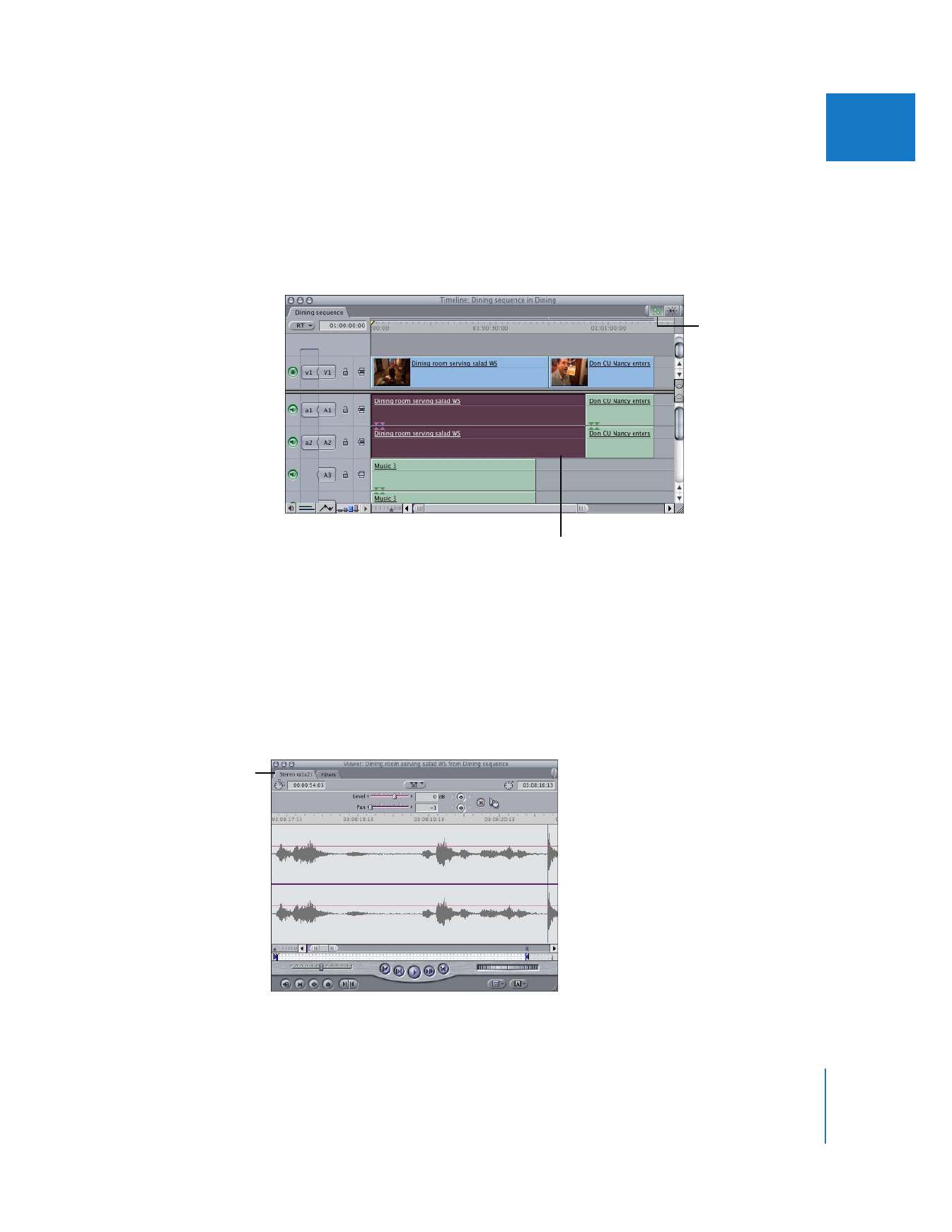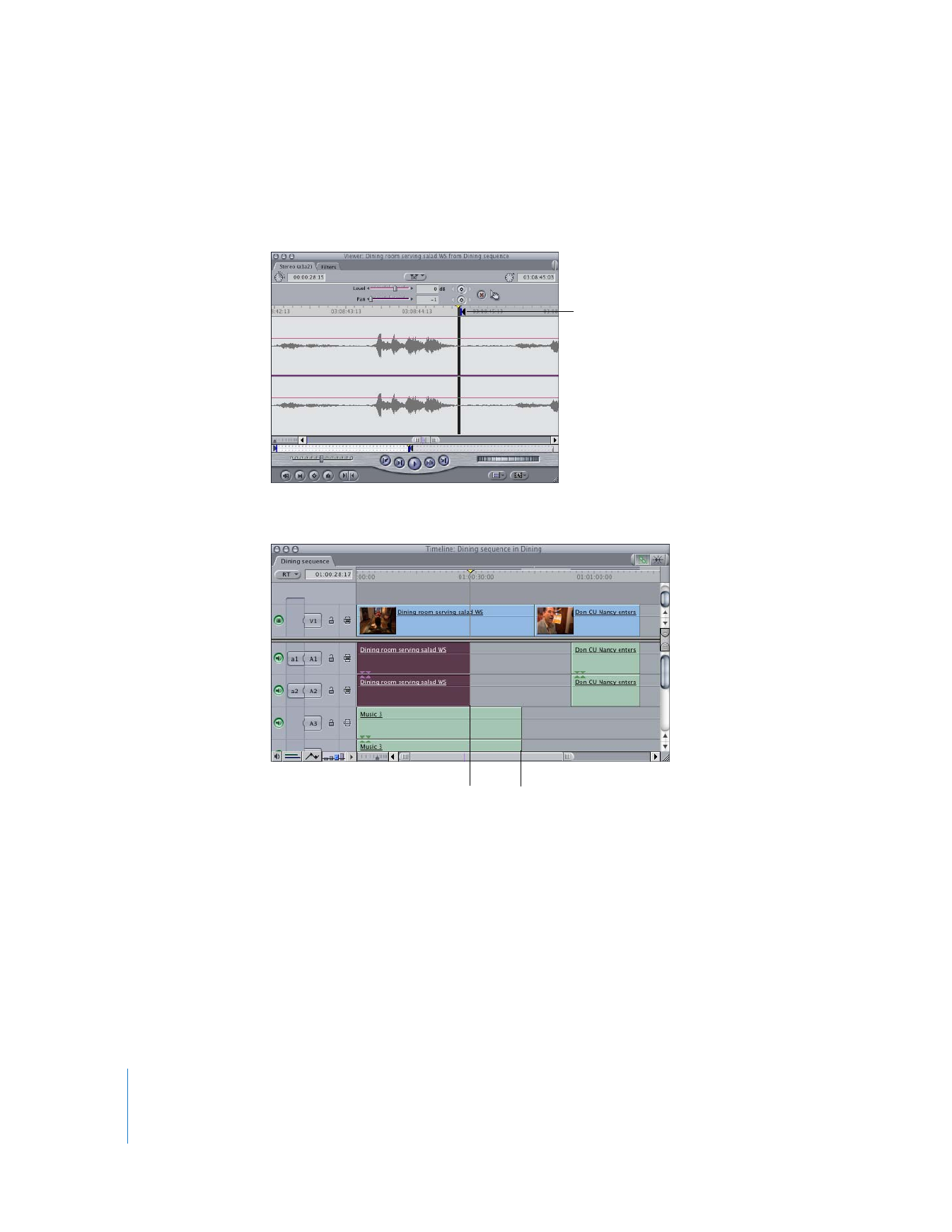
Trimming Audio Clips in the Viewer
You can trim an audio clip to be shorter or longer. Trimming generally refers to
precision adjustments, anywhere from one frame to several seconds. For more about
techniques for trimming clips in your sequence, see Chapter 19, “
Learning About
Trimming Clips
,” on page 341.
Note: If you want to open a sequence audio clip item in the Viewer, independently of
its linked video clip item, you need to make sure that linked selection is turned off. For
more information, see Chapter 14, “
Linking and Editing Video and Audio in Sync
,” on
page 213.
Use the drag hand to
move an audio file.

Chapter 17
Audio Editing Basics
299
II
To trim a sequence audio clip item in the Viewer:
1
Disable linked selection by doing one of the following:
 If linked selection is on, click the Linked Selection button (or press Shift-L) to turn
it off.
 Hold down the Option key and click the audio item.
2
Drag the audio item from the sequence to the Viewer.
The audio item opens in the Viewer by itself.
You can also double-click the audio clip item to open it in the Viewer, but you may
need to hold down the Option key to make sure that only the audio clip item is
selected when you double-click.
The link between the audio and video in your clip has not been broken, but you can
now trim the audio independently of the video to which it’s linked.
Audio selected
independently of video
Linked Selection
button
The audio opens in the
Viewer by itself.

300
Part II
Rough Editing
3
Select the Selection, Ripple, or Roll tool by clicking in the Tool palette, or by using the
appropriate keyboard shortcut.
4
Set new In and Out points as you would for any other clip.
Changes you make to sequence clips in the Viewer are mirrored in the Timeline.
New Out point set
The Out point of audio
changes to match that
in the Viewer.
Original Out point

Chapter 17
Audio Editing Basics
301
II